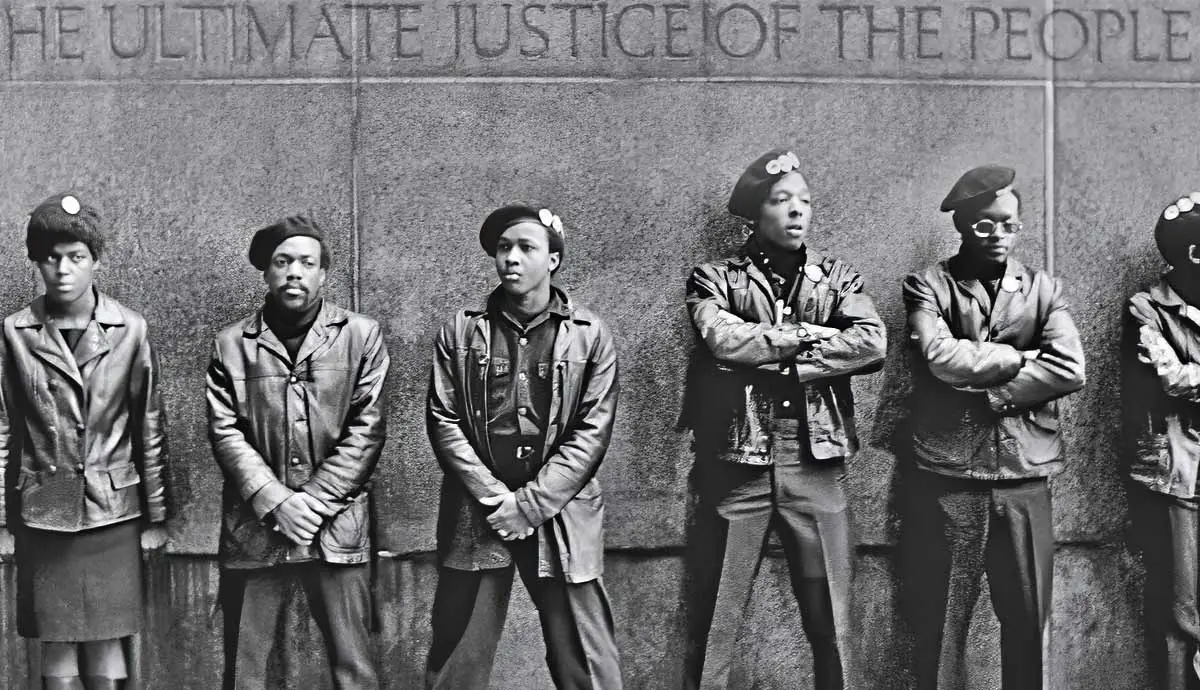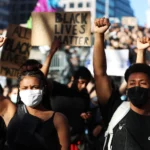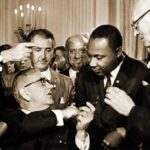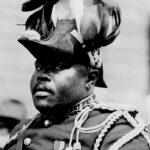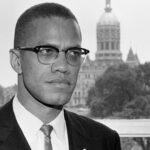The Black Panthers, officially known as the Black Panther Party for Self-Defense, emerged in the 1960s as a revolutionary organization advocating for civil rights, self-defense, and empowerment within the African American community. This comprehensive biography delves into the origins, ideology, major events, achievements, controversies, notable figures, and legacy of the Black Panthers.
2. Origins
The Black Panthers were founded on October 15, 1966, in Oakland, California, by Huey P. Newton and Bobby Seale. Initially formed as a response to police brutality and systemic oppression, the organization aimed to address the socio-economic and political issues facing African Americans.
3. Ideology
3.1 Ten-Point Program
The Black Panthers’ ideology was encapsulated in their Ten-Point Program, emphasizing demands such as employment, decent housing, and an end to police brutality.
3.2 Self-Defense and Armed Struggle
The party asserted the right of self-defense, advocating for the arming of African Americans to protect their communities against police violence.
4. Major Events and Achievements
4.1 Community Programs
The Black Panthers initiated numerous community programs, including the Free Breakfast for Children Program, health clinics, and educational initiatives, addressing systemic inequalities.
4.2 Political Engagement
Their engagement in electoral politics was exemplified by the election of Bobby Seale to the city council in Oakland in 1973.
5. Members
5.1 Key Figures
Prominent members included Huey P. Newton, Bobby Seale, Eldridge Cleaver, and Angela Davis, who played pivotal roles in shaping the organization’s narrative.
5.2 Grassroots Activists
The Black Panthers boasted a large cadre of grassroots activists dedicated to implementing community programs and organizing for social change.
6. Controversies
6.1 FBI Surveillance and COINTELPRO
The Federal Bureau of Investigation (FBI) targeted the Black Panthers through COINTELPRO, a covert program aimed at discrediting and disrupting the organization.
6.2 Internal Conflicts
Internal disagreements, ideological shifts, and power struggles within the party contributed to its decline.
7. Notable Figures
7.1 Huey P. Newton
As a co-founder and Minister of Defense, Newton was a charismatic leader and intellectual force behind the Black Panthers.
7.2 Bobby Seale
Co-founder and Chairman, Seale was instrumental in articulating the party’s tenets and expanding its influence.
7.3 Angela Davis
A prominent member, Davis contributed to the Black Panthers’ intellectual foundation and advocated for racial and gender justice.
8. Legacy
The Black Panthers left an enduring legacy, influencing subsequent social justice movements and sparking conversations about systemic racism and police violence. Their community programs inspired similar initiatives, emphasizing the importance of self-determination and empowerment.
Top 20 Questions Answered
- Why were the Black Panthers formed?
- The Black Panthers were formed in response to police brutality and systemic oppression faced by the African American community.
- What was the Ten-Point Program?
- The Ten-Point Program outlined the Black Panthers’ demands, including employment, decent housing, and an end to police brutality.
- How did the Black Panthers engage in self-defense?
- The Black Panthers advocated for the arming of African Americans to protect their communities against police violence.
- What were the major achievements of the Black Panthers?
- The Black Panthers initiated community programs, engaged in political activism, and left a lasting legacy in the fight against systemic inequalities.
- Who were the key figures in the Black Panthers?
- Key figures included Huey P. Newton, Bobby Seale, Eldridge Cleaver, and Angela Davis.
- What were the internal conflicts within the Black Panthers?
- Internal conflicts included ideological disagreements and power struggles, contributing to the organization’s decline.
- How did the FBI target the Black Panthers?
- The FBI targeted the Black Panthers through COINTELPRO, a covert program aimed at discrediting and disrupting the organization.
- What community programs did the Black Panthers initiate?
- The Black Panthers initiated programs such as the Free Breakfast for Children Program, health clinics, and educational initiatives.
- Did the Black Panthers participate in electoral politics?
- Yes, Bobby Seale was elected to the city council in Oakland in 1973, showcasing the party’s engagement in electoral politics.
- How did the Black Panthers address issues of gender and racial justice?
- Angela Davis, among others, advocated for both racial and gender justice within the Black Panthers.
- What was the impact of the Black Panthers on subsequent social justice movements?
- The Black Panthers’ legacy influenced subsequent movements, sparking conversations about racism and police violence.
- Why did the Black Panthers decline?
- Internal conflicts, external pressures, and ideological shifts contributed to the decline of the Black Panthers.
- What were the FBI’s COINTELPRO operations against the Black Panthers?
- COINTELPRO was a covert FBI program aimed at discrediting and disrupting the Black Panthers through surveillance and misinformation.
- How did the Black Panthers contribute to education?
- The Free Breakfast for Children Program was a notable initiative providing nutritional support to underprivileged children.
- What is Angela Davis’s role in the Black Panthers?
- Angela Davis played a prominent role in contributing to the intellectual foundation of the Black Panthers and advocating for justice.
- Did the Black Panthers use violence as a means of achieving their goals?
- While the Black Panthers advocated for self-defense, they also emphasized community programs and political engagement.
- What is the significance of the Black Panthers’ armed patrols?
- Armed patrols were conducted by the Black Panthers to monitor police behavior and protect African American communities.
- How did the Black Panthers impact Black empowerment?
- The Black Panthers sought to empower the Black community through self-defense, education, and social programs.
- What was the relationship between the Black Panthers and other civil rights organizations?
- The Black Panthers had complex relationships with other civil rights organizations, with some alliances and conflicts.
- How are the Black Panthers remembered today?
- The Black Panthers are remembered as vanguards of justice who confronted systemic inequalities, inspiring ongoing struggles for civil rights and social justice.

